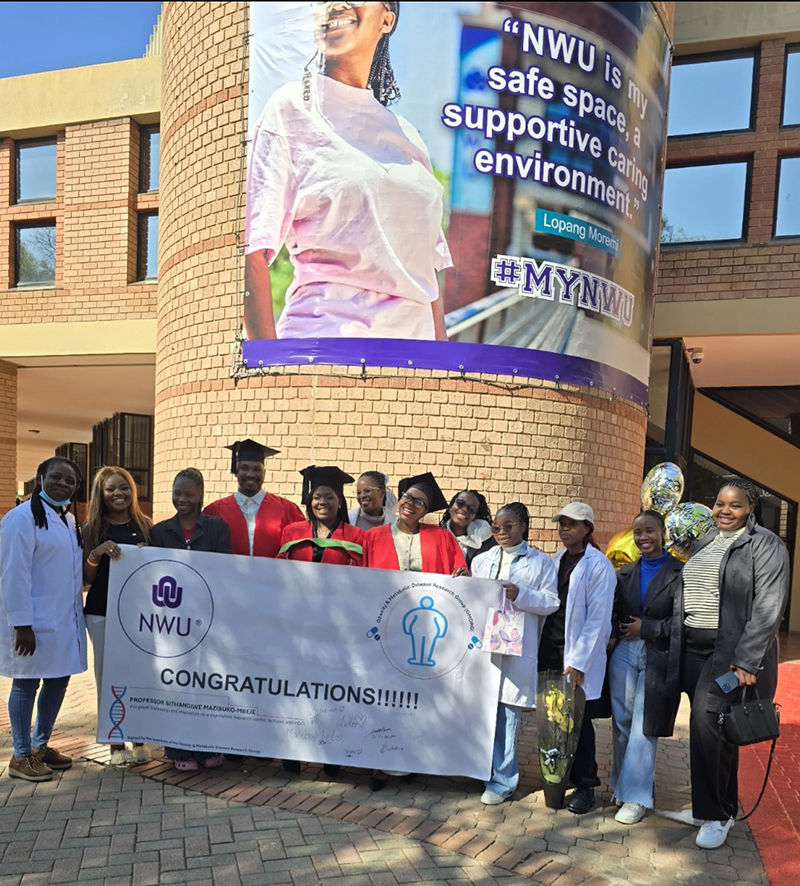In a quiet laboratory on the North-West University’s (NWU’s) Mahikeng Campus, a group of postgraduate students huddle over microscopes and data sheets. At the centre of their work is not only the science they are uncovering, but also the mentor guiding them to think beyond experiments and toward the bigger questions of research and contributing to society.
That mentor is Prof Sithandiwe Mazibuko-Mbeje, a biochemist whose journey from student to scientist has become intertwined with the futures of those she trains. Her career, rooted in studies of toxicology, oxidative stress and natural health products, reflects a belief that research should do more than generate results; it should cultivate people.
Her story began with curiosity and persistence. Coming from modest beginnings, she understands the importance of resilience and found in science a space where questions about health and human resilience could be tested and answered. Rising to the rank of full professor and head of the Biochemistry subject group at the NWU, she now channels her experience into developing postgraduate training as a cornerstone of her work.
“What matters is not only producing papers,” she says, “but producing graduates who can think independently, who are ethical, and who will make meaningful contributions to society.”
The evidence of that philosophy lies in her students. Many have presented their work at international conferences, won competitive awards, and published in respected journals. One of her mentees, Dr Sinenhlanhla Mthembu, has been recognised nationally for research into natural plant compounds that could treat heart disease. For her, such milestones are proof that mentorship, when paired with rigorous training, can multiply impact.
Her own achievements are considerable. A C2-rated researcher by the National Research Foundation, she has authored over 80 peer-reviewed publications and strengthened her leadership with project management and academic development programmes. In 2023, she received the NWU Highly Promising Next Generation Researcher Award.
Looking ahead, her vision extends beyond the university. She imagines a postgraduate training system that prepares South African graduates to compete globally while responding to local challenges. “Our responsibility is to equip scientists who are not only technically skilled but also capable of solving problems that matter to their communities,” she notes.
Her story, told through the achievements of her students and the principles she teaches, reflects how science can be more than a pursuit of knowledge. In her lab, it is also a training ground for the future.

Prof Sithandiwe Mazibuko-Mbeje with her students.
